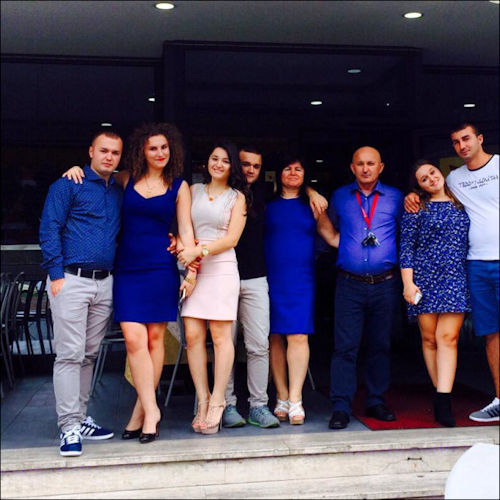Albania’s political deadlock
Dancing, but not moving
Jun 10th 2010, TIRANA and SHKODER
A time-waster in Tirana
A COMMUNIST-ERA Albanian song celebrated the country’s defiant dancing in the mouth of the wolf (western imperialism). Now Albanians are chuckling at headlines that have them dancing in the mouth of the crocodile (the European Union). On May 19th the heads of the two main blocks in the European Parliament summoned Sali Berisha, Albania’s prime minister, and Edi Rama, leader of the opposition Socialists, to Au Crocodile, a restaurant in Strasbourg, to settle their differences.

Albania has been paralysed since last June’s general election, which Mr Rama claims was stolen by Mr Berisha’s Democratic Party. In recent months the Socialists have boycotted parliament, held demonstrations and mounted hunger strikes. Mr Berisha says there is no proof of wrongdoing. However, an investigation into one ballot box found that most votes were from people who were abroad or who did not have an identity document allowing them to vote.
The invitation to Au Crocodile began with some boilerplate about the spirit of compromise being the European way of doing things. But then the European parliamentarians came brutally to the point. Albania has applied for EU candidacy. But the EU requires applicants to be well-functioning democracies. Unless Mr Rama and Mr Berisha resolve the issue, the MEPs said, they would recommend the suspension of Albania’s bid.
Albania will not be joining the EU soon. But the row could hinder its attempt to be granted visa-free travel within the Schengen area of 25 European countries. If a decision is put on ice because of the political gridlock, Albanians will be furious and Mr Berisha will heap the blame on Mr Rama. But Mr Rama says it is vital not to pretend all is well in Albania for the sake of expediency.
The dispute has meant that Albania has “wasted a year” it could have used for badly needed reforms, says Albert Rakipi, an Albanian analyst. What worries many is that yet more time will be lost as the row bleeds into the campaign for next year’s local elections.
On paper Albania is one of only a few European countries that did not see its economy shrink last year. Remittances from the large number of Albanian citizens abroad have dropped, but few emigrants have returned home so far, even from recession-wracked Greece.
Yet many suspect that the statistics have been skewed by a massive investment in a highway to Kosovo, and that crisis has merely been postponed. In the last quarter of 2009 year-on-year GDP shrank by 0.8%. “I have never seen things so bad,” says Ylli Sula, who publishes a classified ads newspaper. His business is thriving, though: Albanians short of cash are desperate to sell things.
The Economist Newspaper | Europe









